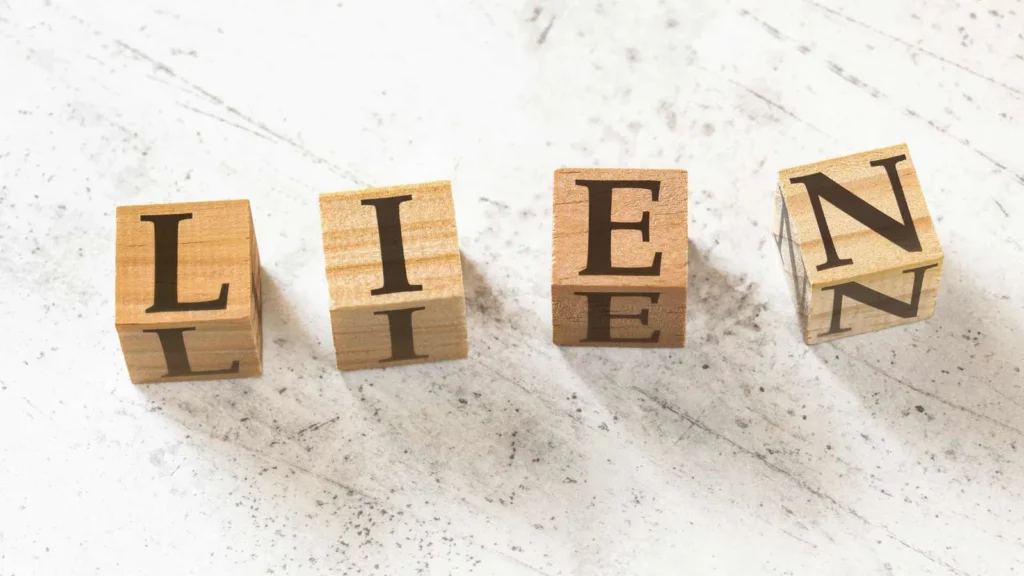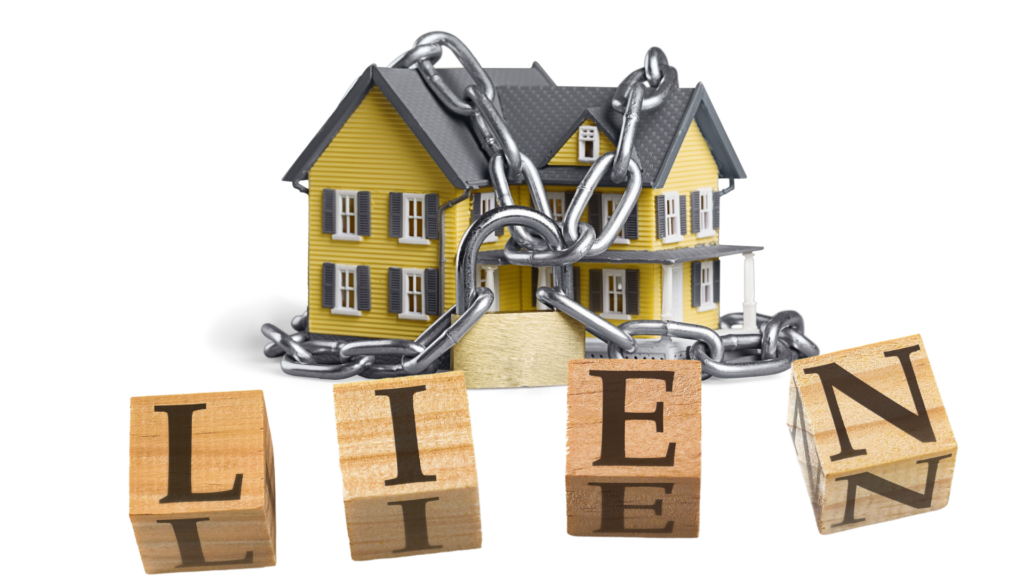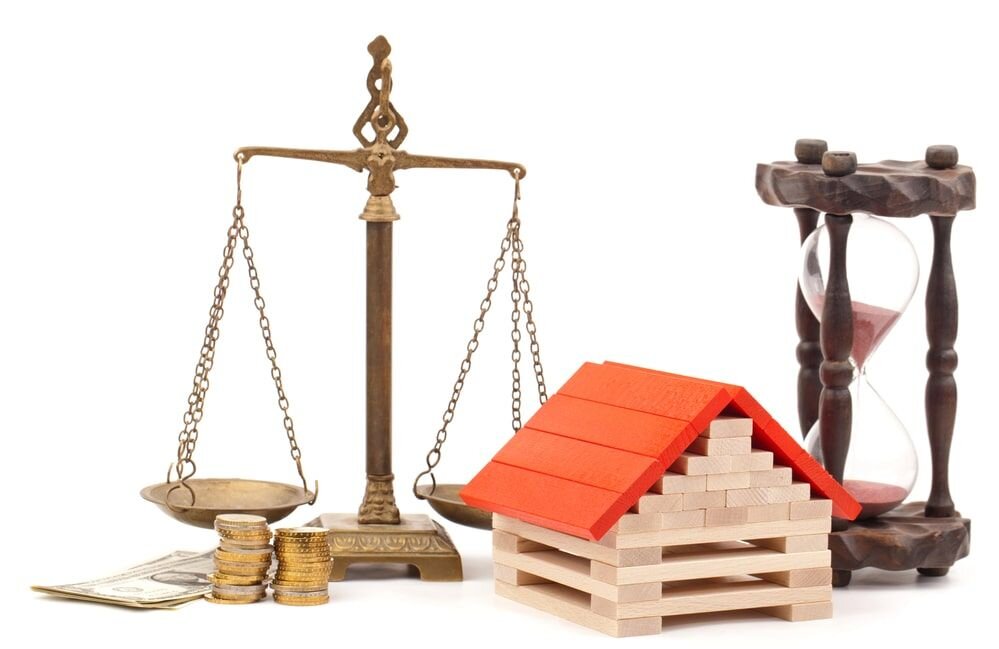Selling a home with a lien in Tampa, FL, is undoubtedly a more complex process than selling a home without one. Whether you’re facing a tax lien, mortgage lien, mechanic’s lien, or judgment lien, dealing with these encumbrances can feel overwhelming. However, understanding the nature of liens, the types of liens that could affect your property, and the available solutions can empower you to make the best decisions for your circumstances. This guide will walk you through everything you need to know about selling a house with a lien in Tampa, including the different types of liens, the step-by-step process, how to deal with the lien, and the options available to you.
What is a Lien?

Before diving into the specifics of selling a house with a lien, it’s important to first understand what a lien is. A lien is a legal claim on a property that serves as security for a debt or obligation. The lienholder (the party who holds the lien) has the right to take legal action to recover the money owed if the debt is not paid. Liens can be placed on a property for various reasons, including unpaid taxes, loans, or services provided (e.g., contractor work). The key thing to remember is that the property cannot be sold until the lien is cleared, unless the lienholder agrees to specific terms.
Common Types of Liens in Tampa, FL
Several types of liens can be placed on a property in Tampa, and each one has specific implications for homeowners looking to sell. Here’s a closer look at the most common types:
1. Tax Liens
A tax lien is placed on your property if you fail to pay your property taxes. In Florida, the local government can file a lien against your home for unpaid property taxes. Tax liens generally take priority over other liens, meaning they must be resolved first before the sale can proceed. The lien is typically cleared by paying the owed taxes at closing, but if the lien is large or you are unable to pay it off, it may complicate the sale.
2. Mortgage Liens
If you have an outstanding mortgage, your lender has a lien on your property. When you sell the property, the proceeds will be used to pay off the mortgage balance. If the sale price is less than the amount you owe, the mortgage lender may agree to a short sale (more on that below) or you might need to come up with the difference in order to close the sale.
3. Mechanic’s Liens
If you’ve had work done on your property by a contractor or supplier and they haven’t been paid, they may file a mechanic’s lien. These liens can also be filed by subcontractors or material suppliers who weren’t compensated for their services. Mechanic’s liens in Florida need to be settled before you can complete the sale. Sometimes, homeowners can resolve these liens by paying the owed amount or negotiating with the contractor to reduce the lien.
4. Judgment Liens
A judgment lien is placed by a creditor or through a court judgment when you lose a lawsuit and the court orders you to pay a debt. This type of lien can be enforced by the creditor, allowing them to claim proceeds from the sale of your home to pay off the debt. Judgment liens in Florida usually appear after a legal action has been taken, and they can stay on your property until they’re satisfied.
5. HOA Liens
Homeowners’ Associations (HOAs) may place a lien on your property for unpaid association dues, assessments, or fines. HOAs often have the power to place a lien if dues are not paid for a certain period, and the lien must be cleared before you can sell the home. In some cases, HOA liens can be negotiated, especially if you are selling due to financial hardship.
Can You Sell a House with a Lien in Tampa, FL?

The answer is yes — you can sell a house with a lien in Tampa, FL, but there are specific steps and considerations to take into account. It’s important to understand that liens complicate the sale because the money from the sale must be used to clear the lien(s) before ownership of the property can be transferred. However, with the right steps, you can sell your property even with one or more liens attached.
Steps to Selling a House with a Lien in Tampa, FL
Step 1: Identify the Type of Lien on Your Property
Before proceeding with the sale, the first step is to identify the lien(s) on your property. You can do this by:
- Checking your property tax bill or records to determine if there’s an outstanding tax lien.
- Contacting your mortgage lender to confirm any remaining balance on your mortgage lien.
- Reviewing any past invoices or contracts to ensure that no mechanic’s lien has been filed.
- Checking with the court system if you’ve had a judgment filed against you.
Understanding which type of lien is on your property will help you determine the next steps, whether it involves negotiating with lienholders or working through a short sale.
Step 2: Get Your Property Appraised
In cases where the home has a lien, it’s important to get an accurate appraisal to assess the market value of the property. This helps you determine whether the sale price will cover the lien(s). If the home’s market value is less than what you owe (whether on the mortgage or other liens), it’s essential to know the shortfall and decide if you can afford to cover it. Check out how appraisals work to learn more about property appraisals.
Step 3: Consult the Lienholder
Once you know which liens are on your property, it’s time to consult with the lienholders. This includes your mortgage lender, tax authority, contractors (for mechanic’s liens), or the court system (in the case of judgment liens). Here’s what to expect:
- Tax Liens: The government will likely demand full payment of the outstanding taxes before agreeing to release the lien. You may also be able to arrange a payment plan in some cases.
- Mortgage Liens: Your mortgage lender will likely want the full balance paid off. If your property’s value is less than the mortgage balance, ask your lender if they’re willing to agree to a short sale or deed-in-lieu of foreclosure.
- Mechanic’s Liens: You can negotiate with the contractor to settle the debt for a lower amount or arrange a payment plan. If the contractor is unwilling to cooperate, you might need to pay off the full amount to remove the lien.
- Judgment Liens: In some cases, the creditor may agree to remove the judgment lien in exchange for a reduced payment or a settlement.
Step 4: Consider a Short Sale
If your home is worth less than what you owe on your liens, a short sale might be an option. This is a process where the lienholder agrees to accept less than the full balance owed in order to facilitate the sale. While short sales can be lengthy and complicated, they allow you to sell the home and avoid foreclosure. Be sure to consult with a real estate agent experienced in short sales, as they can help navigate this process.
Step 5: Sell to a Cash Buyer
If dealing with liens is proving too complex or you need a faster solution, consider selling your house to a cash buyer. Cash buyers are often more flexible when it comes to buying homes with liens, and they may handle the negotiation and payment of liens directly. This can save you time and effort in resolving the lien(s) before the sale. Plus, cash sales typically close much faster, sometimes within a few weeks, which could be ideal if you’re in a time crunch.
Step 6: Pay the Lien at Closing
Once you find a buyer, the lien must be paid off during closing. The closing agent or title company will handle this process, ensuring the lienholder is paid the owed amount from the proceeds of the sale. If there is any remaining balance after the lien is satisfied, the seller may need to pay the difference to the lienholder.
Options If You Can’t Pay Off the Lien
If you find that you are unable to pay off the lien from the sale proceeds or negotiate a reasonable settlement, there are still options available:
- Negotiate with the Lienholder: Sometimes, lienholders will accept a lower amount to satisfy the debt, especially if they know the home will sell quickly. If you cannot afford to pay off the lien in full, try to negotiate a settlement.
- File for Bankruptcy: In some cases, filing for bankruptcy can discharge certain types of liens, but this should be considered a last resort after consulting with a bankruptcy attorney.
How to Avoid Liens in the Future

To avoid the stress of dealing with liens in the future, here are some tips:
- Pay property taxes on time: Stay on top of your tax payments to avoid property tax liens.
- Ensure timely payment of mortgages and loans: If you’re unable to make payments, consider refinancing or negotiating with your lender before the situation escalates.
- Communicate with contractors: Always pay contractors and suppliers for work done to avoid mechanic’s liens.
- Stay current on HOA fees: If you live in a community with an HOA, make sure you pay your dues on time to avoid liens.
Frequently Asked Questions (FAQs)
Q: Can I sell my house with a lien if I still owe money on my mortgage?
Yes, but you’ll need to pay off the mortgage balance at closing. Any other liens will also need to be resolved before the sale can go through.
Q: How long does it take to sell a home with a lien in Tampa?
It depends on the lien type and how quickly you can negotiate with lienholders. A short sale may take several months, while selling to a cash buyer can be done in a matter of weeks.
Q: Will selling a house with a lien affect my credit?
It may, depending on how the lien is handled. If the lien is paid off at closing, your credit will not be negatively impacted. However, if the lien is unresolved or you face foreclosure, it could lower your credit score.
Moving Forward with Confidence
Selling a house with a lien in Tampa, FL, might seem daunting, but it’s entirely possible with the right approach. By understanding the specific lien on your property, working with lienholders, and knowing the options available, you can still sell your home successfully. Whether you’re dealing with a tax lien, mortgage lien, or mechanic’s lien, the process involves negotiating with creditors, possibly doing a short sale, and ensuring that all debts are settled during the sale.
If the situation feels overwhelming, don’t hesitate to seek professional help from a real estate agent who specializes in these types of transactions or consult with a legal expert. In some cases, selling to a cash buyer can expedite the process and offer a smoother resolution, especially if you’re looking for a fast sale without the complexities of traditional buyers.
With the right resources and knowledge, you can navigate through the lien resolution process and sell your home, ultimately paving the way for a fresh start. There are plenty of options available, so take the steps necessary to move forward with confidence and clarity.

